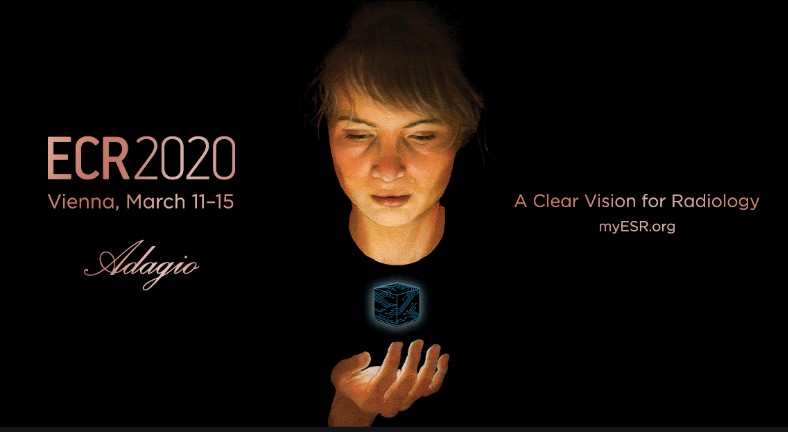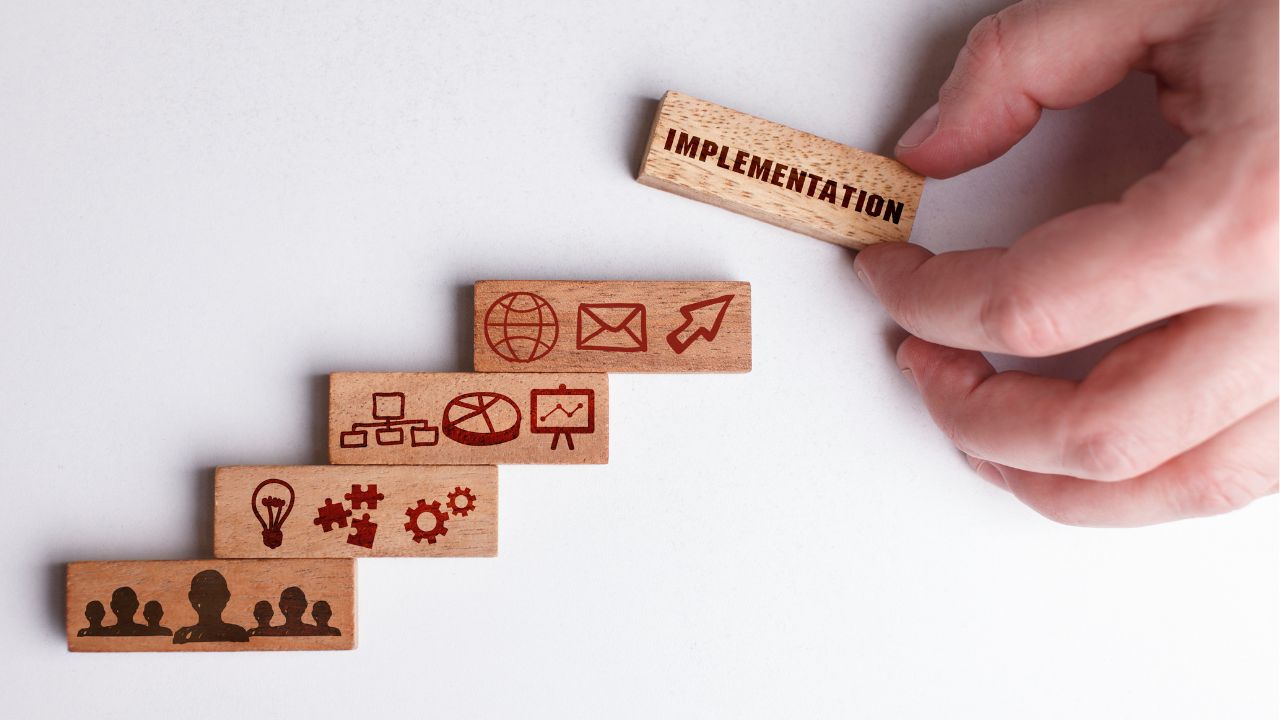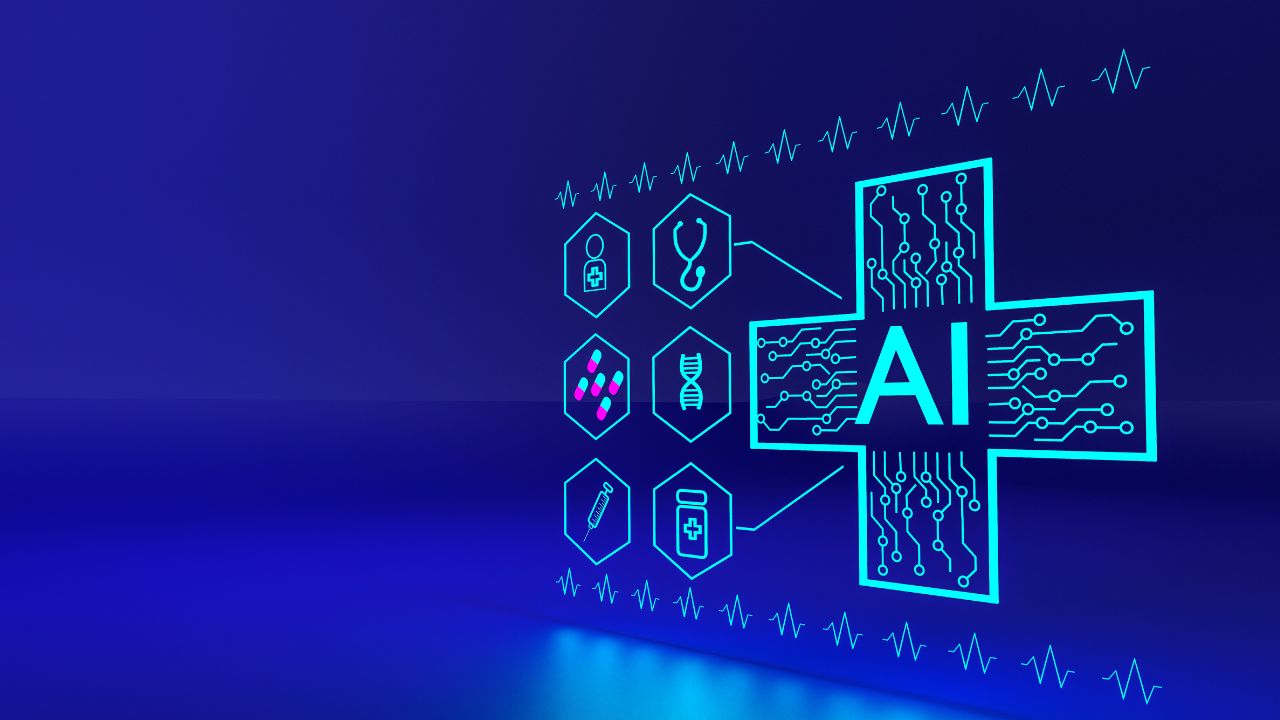Radiologists are bombarded with innovation, overwhelmed with work and enthusiastic about delivering exceptional patient care. These commitments and attitudes are why the medical industry has become one of the leaders in technology adoption and invention – radiologists want solutions that allow them to achieve more with their expertise while managing overwhelming patient burdens with greater care. At the European Congress of Radiology (ECR) Vienna 2020, this passion is reflected in an impressive program that balances professional, educational and scientific content that allows for professionals to gain a deeper understanding of industry and innovation.
This year, the incoming ESR President, Professor Boris Brkljačić from Zagreb, Croatia, revealed that lung cancer screening, artificial intelligence (AI), and stroke diagnosis and treatment will be among the emerging hot topics covered at ECR 2020. It’s hardly surprising – AI has become a primary conversation point in the industry over the past few years and organizations that provide AI solutions have grown in both scope and size. ECR Vienna is likely to see significant growth in AI vendor participation and demonstration as at the Radiological Society of North America (RSNA) 103rd Scientific Assembly and Annual Meeting 2019. At RSNA, AI showcases rose from a few small stands in 2017 to a dedicated area that saw impressive footfall and engagement in 2019.
AI has proven itself to be a solid and reliable partner in the radiology environment, providing additional tools and resources that support professionals and their increasingly weighty caseloads. It is also a highly competitive market that’s making plenty of noise which makes it complex for radiologists to find the right partners and solutions for their unique operating environments.
To fully benefit from the information, showcases and presentations at ECR 2020, you need to attend the show with an established baseline strategy and with a clear understanding of what you need from your technology partners going forward.
ECR 2020: A strategic foundation
Over the past few years, AI-driven radiology solutions have achieved notable accreditations and approvals from important healthcare organizations. The Therapeutic Goods of Australia (TGA), US Food and Drug Administration (FDA), and the European Union CE have put their proverbial stamp of approval on a variety of different applications and solutions. Aidoc, one of the leading providers of radiology solutions, has already obtained the CE mark for four algorithms and has FDA clearance in triage for cervical spine fractures, pulmonary embolism, large-vessel occlusion and intracranial hemorrhage. Aidoc is also one among multiple different organizations set to present at ECR Vienna 2020 and that has the relevant credentials to support radiology going forward. With such a large group of diverse vendor offerings to choose from, it’s close to impossible to choose the right partner unless you have a solid strategy in place before you attend the event, or make any serious business decisions.
Before embarking on your AI journey (or any high-level technology investment within the medical profession), you have to evaluate the following factors: the solution, the partner, and the clinical setting. To ensure that any solution delivers the right value, you have to have an understanding of how it works within the clinical environment and its inherent variability. AI is driven by algorithms and they can vary in efficacy dependent on environment, application and solution. They are also only as capable as the training that they receive which brings the conversation back to the right partnerships and product. You have to ensure that the solution is accurate and robust enough to deliver what you need and it needs to solve your very specific problems.
If the AI platform can’t provide the outcomes you need in a meaningful and cost-effective way, then it’s not the right fit. When gathering the threads to weave into your strategy, this is perhaps one of the most important factors to consider. AI may not be created equal, but any solution has to map back to your outcomes, budgets, and workflows. You need to define clear performance indicators that can include anything from efficiency to length of stay to turnaround time, and you need to ensure that your existing IT resources will not be hampered by the integration of an AI solution.
Next, you need to investigate user experience and workflow integration and the reviewed professionalism of the vendor. If an AI service provider is worth their salt, they will have customer reviews and references that can be accessed to determine how well they partner with their clients and the relevant outcomes. At ECR 2020, there will be plenty of AI and emergent technology solutions providers with solid resumes and solutions. Assess their relevance against your strategy, customer reviews, long-term partnership potential, and ongoing innovation. You may have a vision for now, but you want to work with a partner that’s always developing new algorithms and applications so your platform and investment are futureproofed.
ECR 2020: Finding the right partner
There are more than 300 exhibitors at ECR 2020 and only four days in which to connect with the right vendors and establish lines of communication. Your best strategy is to schedule appointments with only those vendors that meet the strategic criteria outlined above as this will ensure that your time is spent gathering the kind of information that will inform your discussions and investment going forward. The following checklist is a good place to start when fine-tuning your ECR 2020 meetings and the vendors that you’re most likely to connect with on a meaningful level:
- Customer reviews, user experience and workflow integration – ensure the solution can be easily adopted by your users and that there are testimonials from real-life implementations to support the claims.
- Long-term stability – you want a partner that will deliver consistent innovation and performance over the long term. Work with partners that have a solid industry foundation and have been operating for several years. They will need robust funding sources, a comprehensive suite of tools and a clear vision that scales over time.
- Capabilities and certification – meet with partners that have the approvals and certifications for what’s most relevant to you. If you specialize in intracranial hemorrhage, then the AI provider should have credentials and algorithms that match this need.
- Customization – are they open to customizing the solution to suit your unique environment and are they willing to work with you in ensuring that any solution be designed to address your specific requirements?
At ECR 2020, you can find a list of all the vendors that will be exhibiting at the event here. This year, ECR Vienna is continuing its AIX – Artificial Intelligence Exhibition – an interactive space dedicated to AI and its applications within medical imaging. This, along with the AI presentations, is set to be one of the most dynamic parts of the event this year.
ECR Vienna: Artificial Intelligence
The ECR 2020 scientific program has set out to demystify and discuss AI in radiology with an impressive line-up of speakers, courses, showcases and analyses. The courses are dedicated to European Excellence in Education (E3) and the discussions include open forums, commentary from countries such as Israel and Canada, and sessions that examine certification, safety and challenges within the radiology profession.
Some of the stand out E3 courses include AI in radiology basics, AI and clinical decision support, challenges for introducing AI into daily clinical workflow, and pushing the boundaries in multimodality radiomic quantification. There are workshops designed to test skills and provide the opportunity to adopt the latest techniques and solutions, and the AIX Theatre sessions are set to offer rich insight into the capabilities of AI within the radiology environment. These sessions will allow for you to further your understanding of how AI can positively impact on radiology and some of the most important considerations when it comes to implementing a solution in your practice.
Aidoc at ECR Vienna 2020
ECR Vienna 2020 is set to be a landmark when it comes to AI in radiology. The event offers significant stickiness to those who want to expand their understanding of AI and who want to investigate potential partners for the implementation of AI. Aidoc will be at the ECR 2020 from 11-14 March 2020 and our booth will be situated at A1-20, Expo X1, AI Expo. You can find a map to the AI Expo and the various exhibitors at the event here, to make it easier for you to navigate your way through the more than 300 vendors and thousands of attendees.
Aidoc is one of the market leaders in AI radiology solutions with a wide range of pathologies and modalities on offer. The company has a clearly defined roadmap that showcases its capabilities and outlines the pathologies that it’s planning to undertake over the next five to ten years, ensuring that it remains future-forward and future proof. The company has already worked closely with market leaders, globally, and the Chief Medical Officer Dr. Gal Yaniv will present a clinical use case of Aidoc’s integration at Sheba Medical Center on Thursday, March 12th in the AI Theatre from 11:10 – 11:16. Also on Thursday, Aidoc’s CEO, Elad Walach, will speak in the AI Theatre from 15:00 – 15:20 on building an AI strategy and important considerations when selecting an AI vendor.












